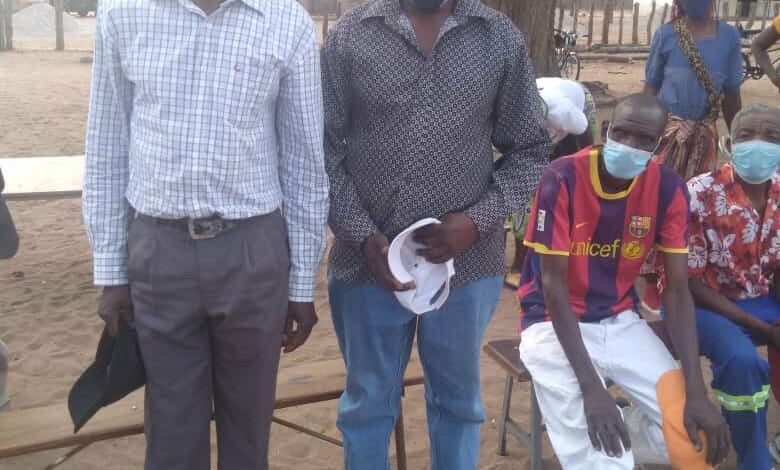San community welcomes appointment of chief

The San community has welcomed the appointment of Christopher Dube as their chief, describing the development as a positive move that will uplift the community as the traditional leader is now mandated to act in their interests and represent them in national programmes.
Chief Goledama (57) of Garia Village, Tsholotsho becomes the first San chief after he was chosen Tuesday by members of the community in a process that was overseen by the representatives from the Ministry of Local Government, Public Works and National Housing.
His appointment was done at Butabubili Village in Ward 8 Tuesday, where the community also chose a headman designate, Mazebele Zekius Tshuma.
In an interview with CITE, Tsoro-o-otso San Development Trust Director, Davy Ndlovu, said the move was long-awaited and the community is pleased as they now had someone to represent them.
“Dube’s appointment as our chief comes as part of efforts to revive, retain and promote the Tshwao (Tjwa) culture. Past efforts to do this were in vain because of the way the San lived and customs where they believed a leader who could lead a community was someone who was gifted or possessed some talent either be it rain making, was a sharp hunter or was a hosanna (healer),” he said.
“However that kind of leadership created problems because if the next successor from that same family did not have that kind of call, the chieftainship would go to another family. So these were some of the challenges that we faced in selecting a chief until the San agreed that they would have to create a new Tshwao leadership.”
Ndlovu said as a way forward, the community agreed that to create a new Tshwao leadership structure, they would have to identify a ‘trusted’ individual.
“Dube is someone who has been advocating for San empowerment and is very active in the community. He was chosen by the community including elders who approved. During the event, local government ministry representatives were present and everyone was happy, as the process went well. No one opposed Dube’s appointment,” he noted.
The San advocate stated that since the community had discussed prior what they were looking for in a leader, they agreed that over time, they would have a strategic plan meeting to discuss how they would work with the chief.
“It was agreed that among his roles and duties, Chief Goledama would be the patron of the Tsorotso San Development Trust. Secondly, he must be the voice of the San, promote education and its accessibility to members of the community,” Ndlovu said.
“As a chief, Dube must make sure children go to school and parents facilitate that move. Sometimes, parents need to be encouraged to send their children to school, as cultural dynamics evolve. In some cases, you find some members complaining, ‘ah the government doesn’t want to help us,’ but they must also meet the government halfway, as in be willing to be helped. We don’t want people to hide behind the finger and give excuses but there must be a reciprocal way of helping each in committing when programmes are introduced.”
Ndlovu stated that due to their exclusionary way of life, the San were often left out of national programmes.
“For instance, the San would not partake in drought relief programmes or even when they were supposed to register, there would be disorder due to confusion. Now we are happy that Dube will be the focal person to explain government programmes to the community,” he said.
“We thank the government for allowing this process to take place, speeding it up because this is what we have been clamouring for.”
The San advocate lauded that having a chieftainship was a good move as it was institutional where various stakeholders would be involved rather than having one person running a solo campaign.
“If you remember we had the late vice president, John Landa Nkomo, who was assisting us and had a programme to send the San to schools. However, it was his initiative and there was little or no government help but this time the government is involved. Various ministries have come down to us to work with us and it’s no longer one person’s project and because of this it uplifting the San can succeed,” Ndlovu said.
“It’s not advisable to have a programme run by one person because when that individual is not there, it dies but when many people are involved, the programme can continue, as it won’t be relying on one person. From time to time we expect the government to send representatives to come down to people and see what is needed. We thank the way the government is proceeding along with uplifting the San, we can see development coming our way, that’s if the government doesn’t change its attitude.”




